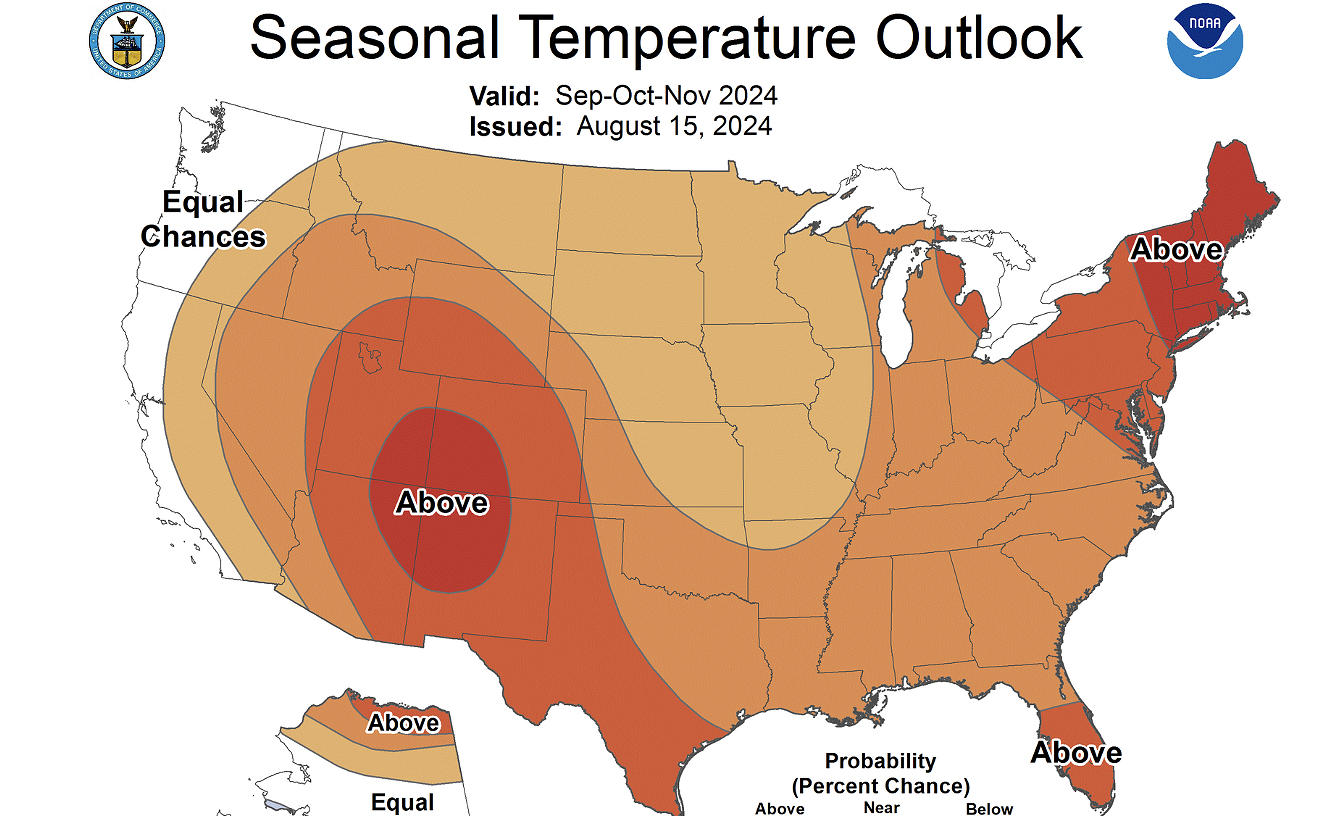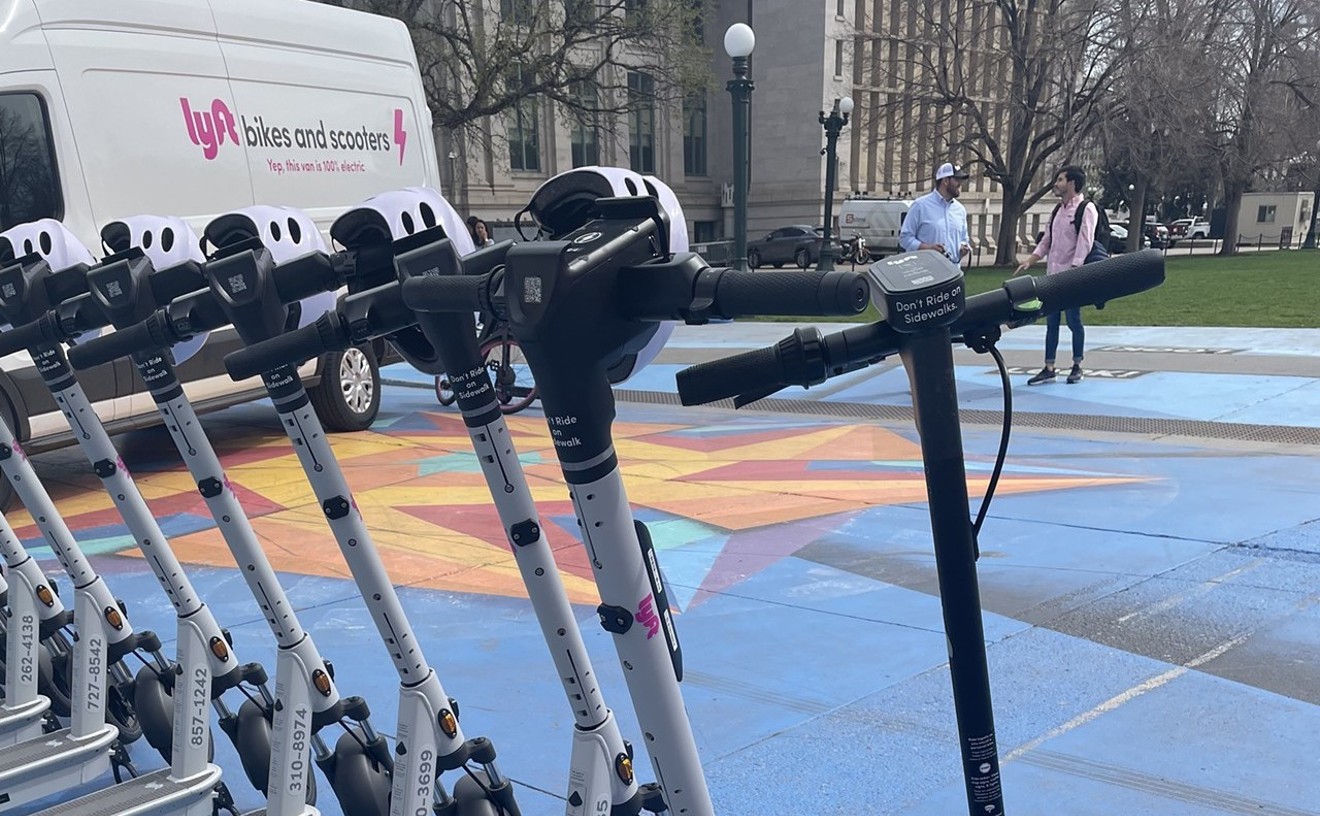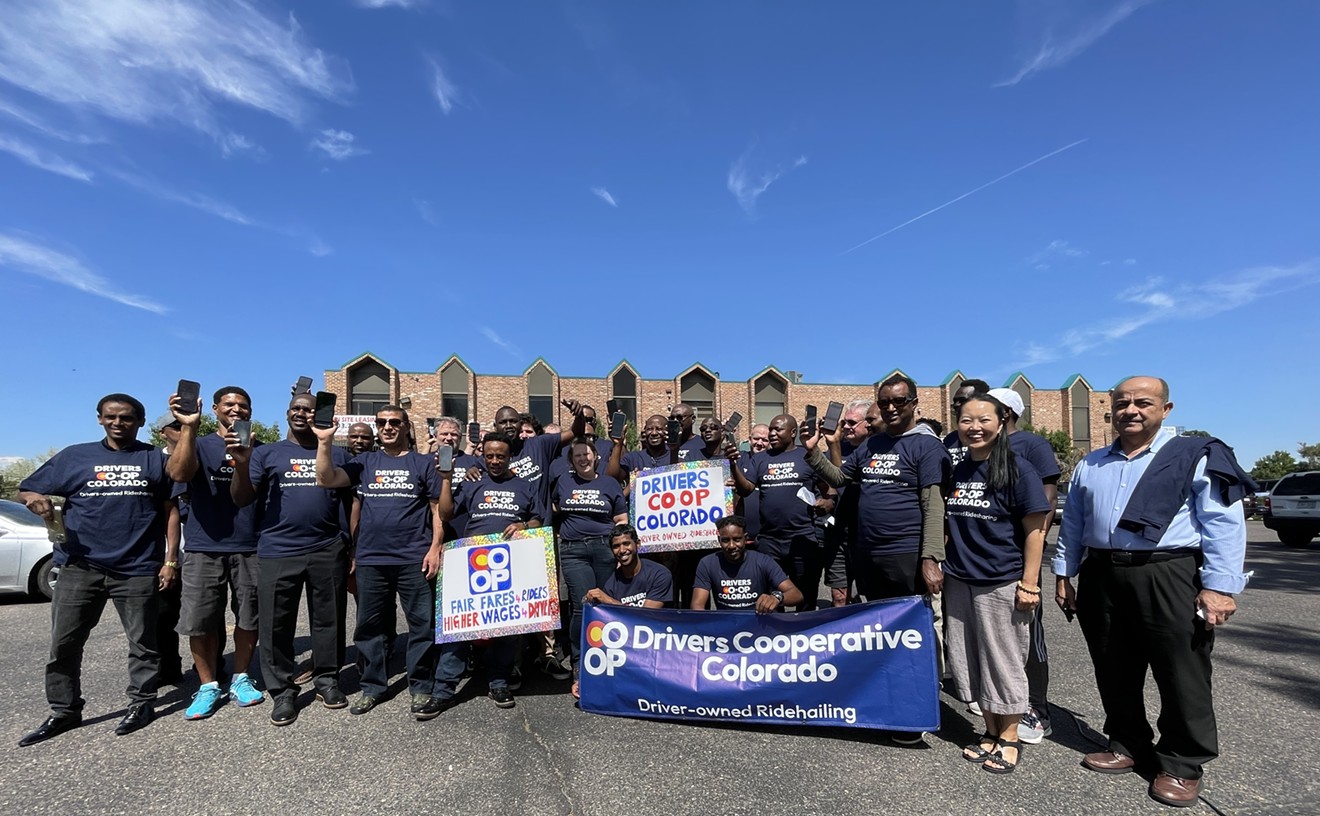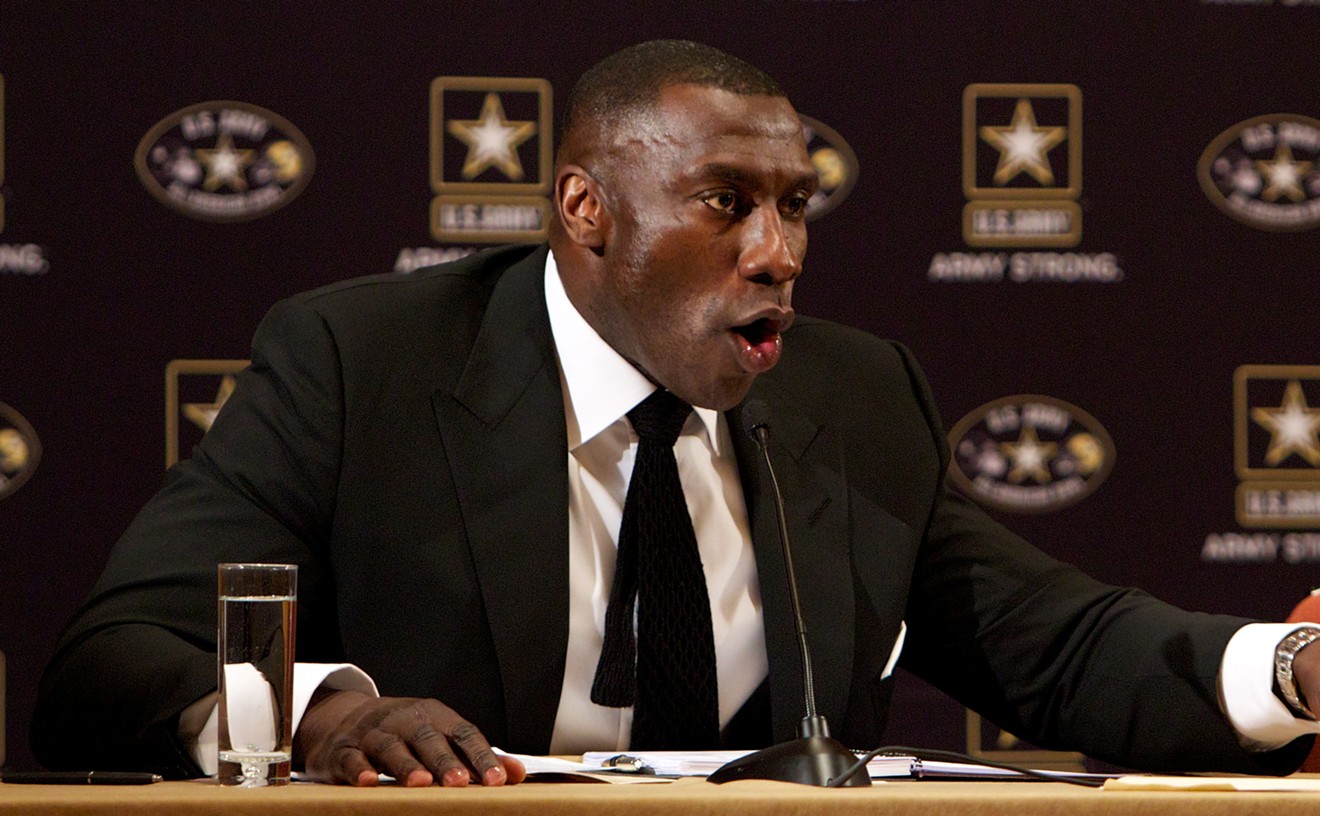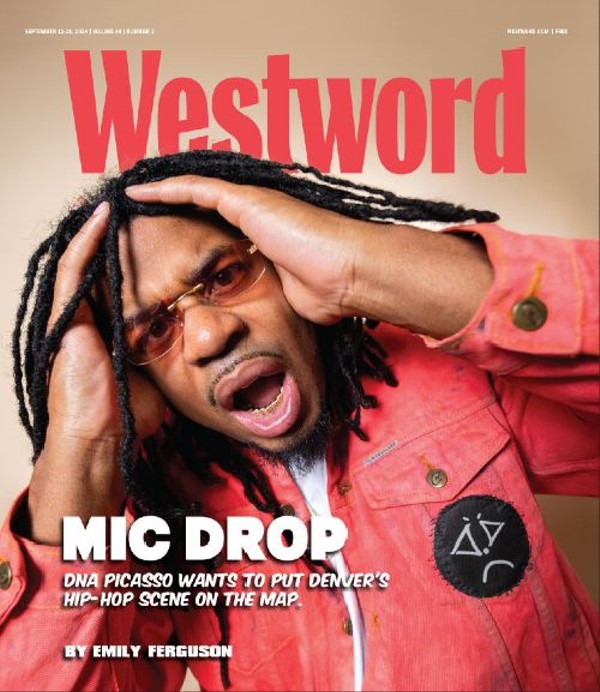The fest is scheduled to run from 11 a.m. to 7 p.m. on Sunday, July 23, at Pulaski Park on East Bayaud Avenue. It honors Colombian Independence Day, which falls on July 20.
More than twenty food vendors will be serving up Colombian classics like sancocho, carne oreada, bandeja paisa and chicharrones. Fans of Colombian style, meanwhile, can pick up handmade clothing, jewelry and art at the festival's many shopping booths.
Local orchestras and bands are set to play throughout the day, with salsa and cumbia — both of which originated in Colombia — as well as pop and reggaetón performances.
"The Colombian festival is a platform to support small, local businesses," says Xiomara Sánchez, president of the Colombian Foundation in Colorado, which hosts the event. "It's also a way to get to know the traditions and cultural practices [and to] promote and build the Colombian culture. ... The main thing about these festivals is that [Colombian] people can enjoy the little things that they can't do because they're far from home. These festivals give us that opportunity. "
The Colombian Independence Festival attracts about 3,000 to 5,000 people each year, Sánchez estimates, and many of them don clothes — soccer jerseys, sombreros and dresses — with the color scheme of gold, blue and red, the colors of the Colombian flag.
Sánchez has seen the Colombian community blossom since she moved to the Mile High City from Cali, Colombia, two decades ago. "If I talked to you about being Colombian in Colorado 21 years ago, and about being Colombian now, the answer would be very different," she says. "Twenty-one years ago, [the culture] was very difficult to find — or simply there was no Colombian restaurant."
Sánchez is excited that the fest is hosting both new and longtime establishments, including South Broadway's LaTinto Cafe, Antojitos Colombianos — a longtime east Denver staple for local Colombians — and Los Parceros, which is now in Aurora after spending several years on East Colfax.
Since the foundation is aware that Colombians aren't the only Latin American community in metro Denver, it tries to share its space with food vendors from other Latin American countries, including "Venezuelan food vendors, Mexican food vendors, El Salvadorans," Sánchez says. "The majority of the food vendors are Colombian, but this is a festival that opens itself up to different cultures. It's a festival where we celebrate Colombian culture and other communities, and it's open to anyone who wants to spend the day outside, enjoying Colombian culture and learning about others."
Among the businesses representing other cultures are Dos Mares, an Aurora restaurant serving Panamanian cuisine; Arepas Queen, which is Venezuelan; and the Mexican restaurant Tacontento & Mas, which is on West Mississippi Avenue. Some of the artisan shops include Curvas Doradas, a clothing store in Aurora; Mar Accesorios, which sells jewelry; and Sanchely Sports, known for its soccer jerseys.
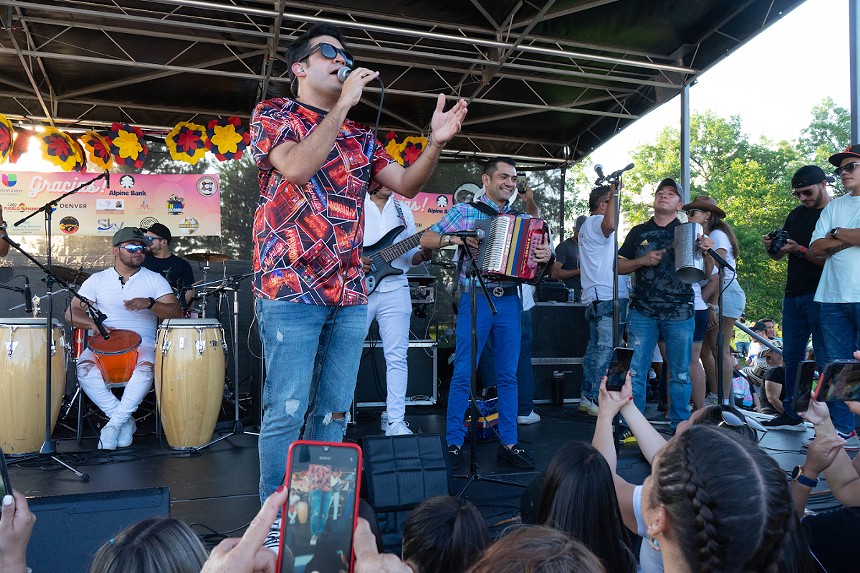
The 2023 Colombian Independence Festival will offer cumbia and salsa music.
Courtesy of Xiomara Sánchez
"We got together at that time to make it happen," Sánchez recalls. "And at that time, we were able to make it happen with a very small format, but the turnout was very large. From that point on, we took leadership to keep doing this festival."
The Colombian Foundation, which was established in 2019, grew out of the festival and continues to organize it, relying heavily on volunteers and donations from local businesses. "Whenever we have an event, we draw on partners in the community to make it happen," she says.
When it's not hosting the festival, the Colombian Foundation in Colorado puts on educational workshops in Spanish — to help people with things like immigration or how to raise children — as well as charitable events, such as Christmas giveaways. The group works with the Colombian consulate in San Francisco to announce when their officials visit Denver, which gives Colombian immigrants a chance to apply for visas and citizenship or to send money back home.
Colorado has about 10,000 Colombian-born citizens within its borders, according to the most recent U.S. Census data.
Roughly 5,300 Colombians live in the metro area, with about 1,700 Colombian-born residents of Denver. More than 500 Colombians are in Aurora, while Colorado Springs boasts a population of about 1,300.
"Colorado is a state that welcomes immigrants," Sánchez says. "It's a cozy state to live in, and we're not a state that rejects people from other communities or with different backgrounds. I think that's why Colorado is a place that various people choose to live in."







